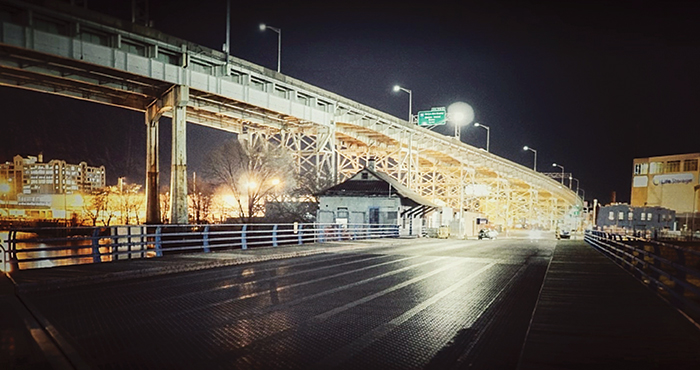Photo Courtesy of Google
Funding from the Infrastructure Investment and Jobs Act will go to help repair major highways like the Brooklyn-Queens Expressway.
By Forum Staff
U.S. Sen. Kirsten Gillibrand (D-N.Y.) is announcing that New York should expect to receive at least $27 billion in direct funding from the Infrastructure Investment and Jobs Act to help revitalize New York State’s aging infrastructure. Several of Gillibrand’s provisions were included in the package, including measures to encourage the use of local workers in infrastructure projects, increase limo safety standards, and invest in marginalized workers and communities. Gillibrand noted that she also fought to secure the single largest dedicated bridge investment since the construction of the interstate highway system and the most significant investment in public transit ever. Additionally, Gillibrand fought for once-in-a-generation investments in airports, roads, connecting local workers to good-paying jobs, improving New York’s water and sewage systems, and making high-speed internet affordable and available in every urban, suburban, and rural community.
“I am proud to have worked alongside President Biden and my colleagues in Congress to deliver one of the boldest and most consequential infrastructure packages in our nation’s history—this package will create jobs, boost our economy, deliver funding to rebuild New York’s aging infrastructure and help rebuild underserved communities,” Gillibrand said. “This once-in-a-generation investment will build a stronger, more resilient economy and lay the foundation for a brighter future.”
Highlights of NYS funding in the bipartisan infrastructure bill:
- $100 million to help provide broadband coverage across the state, reaching at least 186,754 New Yorkers. Currently, 13 percent of New York households do not have an internet subscription and 4 percent of New Yorkers live in areas where there is no broadband infrastructure. This problem particularly affects students, older adults, individuals of color, and lower-income individuals in rural and urban areas.
- $11.6 billion for federal-aid highway apportioned programs to help New York’s 7,300 miles of highway in poor condition. Since 2011, New York’s commute times have increased by 7.4 percent and each driver pays an average of $625 per year in costs from driving on roads in need of repair. This funding will help repair major highways like the Brooklyn-Queens Expressway, which holds the weight of more than 150,000 vehicles per day and is need of upgrades.
- This includes Gillibrand’s Resilient Highways Act, which will give state Departments of Transportation more flexibility with how they choose to use their National Highway Performance Program funds. States are now able to use this money for resiliency projects to make critical improvements to protect bridges, tunnels, and highways against future damage from sea-level rise, floods, wildfires and other disasters. This provision will also help shore up the nation’s infrastructure and economy by raising and relocating roads out of flood risk or slide zones, constructing new protective features like drainage structures and scour protection, and using natural infrastructure to mitigate flood risk.
- $9.8 billion over five years for sustainable and efficient public transportation. New Yorkers who take public transportation spend an extra 58.9 percent of their time commuting and non-white households are 2.5 times more likely to commute via public transportation.
- As a part of the federal-aid highway and public transportation funding, MTA will receive $10 billion to help maintain service, retain employees, and improve existing lines.

